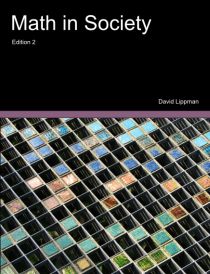Section 10.1 Researchers in Voting Theory and Voter Representation
Subsection 10.1.1 John Banzhaf
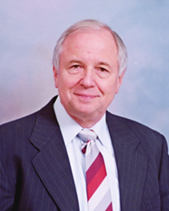
The Banzhaf power index studied in Chapter 9 was originally developed in 1946 (by Lionel Penrose) but received little attention until it was reintroduced by John Banzhaf in 1965. Banzhaf, then a law student but now a law professor, adapted the method for measuring voting power in order to prove that weighted voting didn’t work. As a result, it was held unconstitutional throughout New York, including Nassau County. At the time, the Nassau County voting board used the voting system [16: 9,9,7,3,1,1]. It can be demonstrated using techniques we have learned that this system is indeed unfair. Try it!
Wikipedia
1
en.wikipedia.org/wiki/John_Banzhaf
Mind Your Decisions Blog Post
2
mindyourdecisions.com/blog/2016/05/03/the-formula-that-changed-how-new-york-votes-the-banzhaf-power-index-game-theory-tuesdays/ Subsection 10.1.2 Moon Duchin
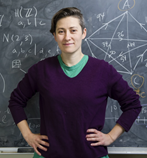
Moon Dunchin is a professor of mathematics at Tufts University in Massachusetts. She has become known as a leading expert in gerrymandering and has made it her goal to use education to combat its use and protect voting rights. She directs the Metric Geometry and Gerrymandering Group (MGGG), whose goal is to research and share with the general public tools for better understanding the impact of districting, and provide consulting services.
Wikipedia
3
en.wikipedia.org/wiki/Moon_Duchin
Tufts Now Article
4
now.tufts.edu/articles/fixing-gerrymandering-geometrySubsection 10.1.3 Ranthony A.C. Edmonds

Ranthony Edmonds is currently an Assistant Research Professor at Duke University. Edmonds works to increase opportunities for Black Americans and other members of other marginalized groups to pursue careers in the mathematical sciences. In the summer of 2021 she was part of a large grassroots effort across multiple states to use mathematics and data science to address fair representation, with a particular focus on utilizing public input on communities of interest for consideration during the 2021 redistricting process. Recently she was awarded an inaugural NSF Ascending Postdoctoral Fellowship to study applications of topological data analysis to redistricting.
Mathematically Gifted & Black Bio
5
mathematicallygiftedandblack.com/honorees/ranthony-a-c-edmonds/
Mathematicians of the African Diaspora (You will need to use the search bar to find her profile.)
6
www.mathad.com/home
Professional Website
7
www.ranthonyclark.com/Subsection 10.1.4 Gregory Herschlag

Gregory Herschlag is an Assistant Research Professor of Mathematics at the Trinity College of Arts and Sciences at Duke University. He earned his Ph.D. from the University of North Carolina at Chapel Hill. Herschlag has partnered with colleague Jonathon Mattingly (also of Duke) to conduct extensive research on strategies for quantifying gerrymandering and understanding fairness in redistricting. He authors a blog on gerrymandering.
Quantifying Gerrymandering Blog
8
sites.duke.edu/quantifyinggerrymandering/author/0468196/
Duke Scholars Profile
9
scholars.duke.edu/person/gjhSubsection 10.1.5 Andrés Jiménez-Losada
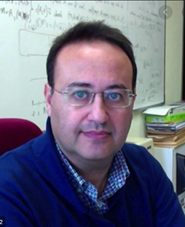
Andrés Jiménez-Losada has been a Professor of Mathematics at the University of Seville in Spain since 1991. Jiménez-Losada has done extensive research applying Banzhaf power principles to systems that are far more complicated than what we have studied in this course. He also studies voting power in the context of game theory. You can read the titles of some of his papers (where you will recognize some of the terminology) and learn a bit more about him at the sites below.
Orcid Profile
10
orcid.org/0000-0002-7571-1240
ResearchGate Profile
11
www.researchgate.net/profile/Andres-Jimenez-LosadaSubsection 10.1.6 Nancy Rodriguez

Nancy Rodriguez is an Assistant Professor of mathematics at the University of Colorado in Boulder. She immigrated to Las Vegas, NV from Mexico at the age of nine. Rodriguez uses mathematical modeling techniques to study social and ecological systems, including crime propagation, crime prevention, social segregation, and other issues related to systems and social justice.
Lathisms Bio
12
www.lathisms.org/calendar-2016/nancy-rodriquez
CU Boulder Faculty Page
13
www.colorado.edu/amath/nancy-rodriguezSubsection 10.1.7 Belin Tsinnajinnie

Belin Tsinnajinnie (Diné and Filipinx, he/him) is currently a mathematics education researcher for WestED, an education non-profit. Previously, he was a Mathematics Professor at Santa Fe Community College, in Santa Fe, NM. After starting off doing research in computational group theory, Tsinnajinnie decided to redirect his efforts toward Mathematics Education. He now focuses on issues related to social justice, equity and diversity in mathematics. In particular, he studies the impact of power dynamics and culture in educational settings.
Meet a Mathematician YouTube Video
14
youtu.be/M14F_oCuxNASubsection 10.1.8 Ellen Veomett
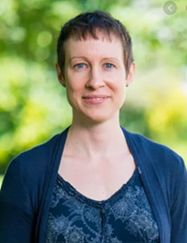
Ellen Veomett graduated from the University of Nebraska–Lincoln as a mathematics major in 2002. She is now a Professor of Mathematics at the University of San Francisco. In 2018 she proved that the utilization of the Efficiency Gap to measure gerrymandering works best under certain conditions, such as full voter turnout. Although the Efficiency Gap was used to strike down a redistricting map in Wisconsin in 2016, there are other measures which have since been developed, including the GEO metric, designed by Dr. Veomett and her collaborators. Veomett continues to make an impact in the study of gerrymandering, having co-authored a publication in the Washington Post as recently as September, 2022.
15
www.washingtonpost.com/politics/2022/09/22/gerrymandering-midterms-democrats-republicans/
Professional Webpage
16
www.ellenveomett.com/
University of San Franciso Faculty Profile
17
www.usfca.edu/faculty/ellen-veomett